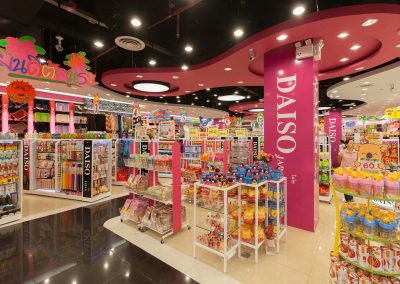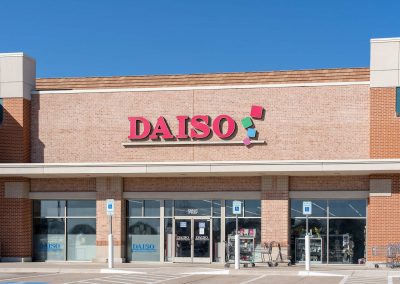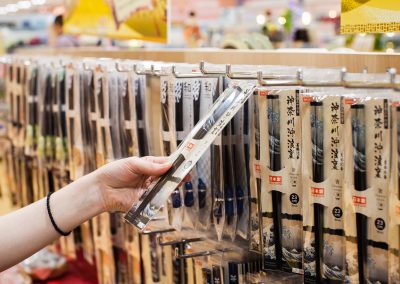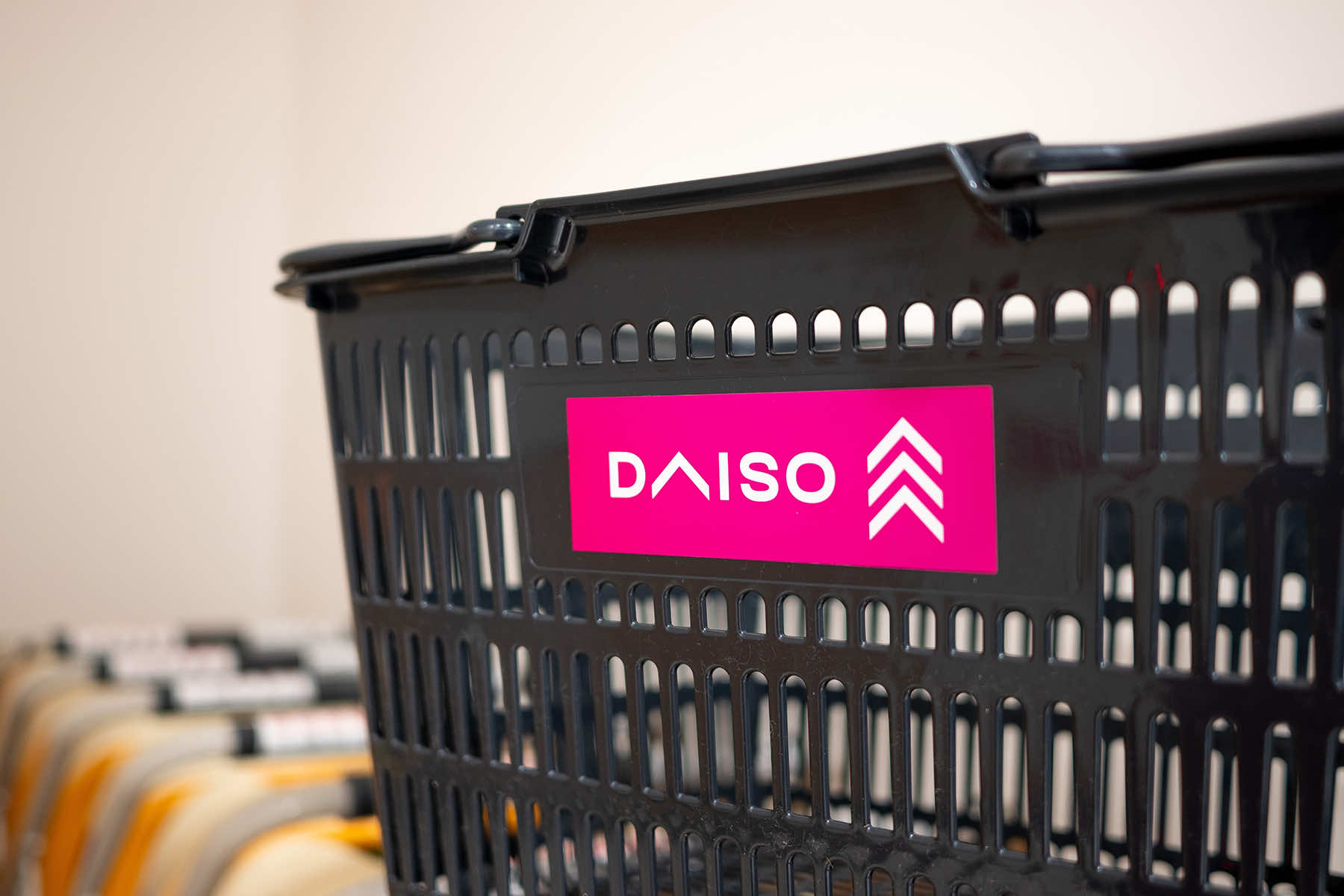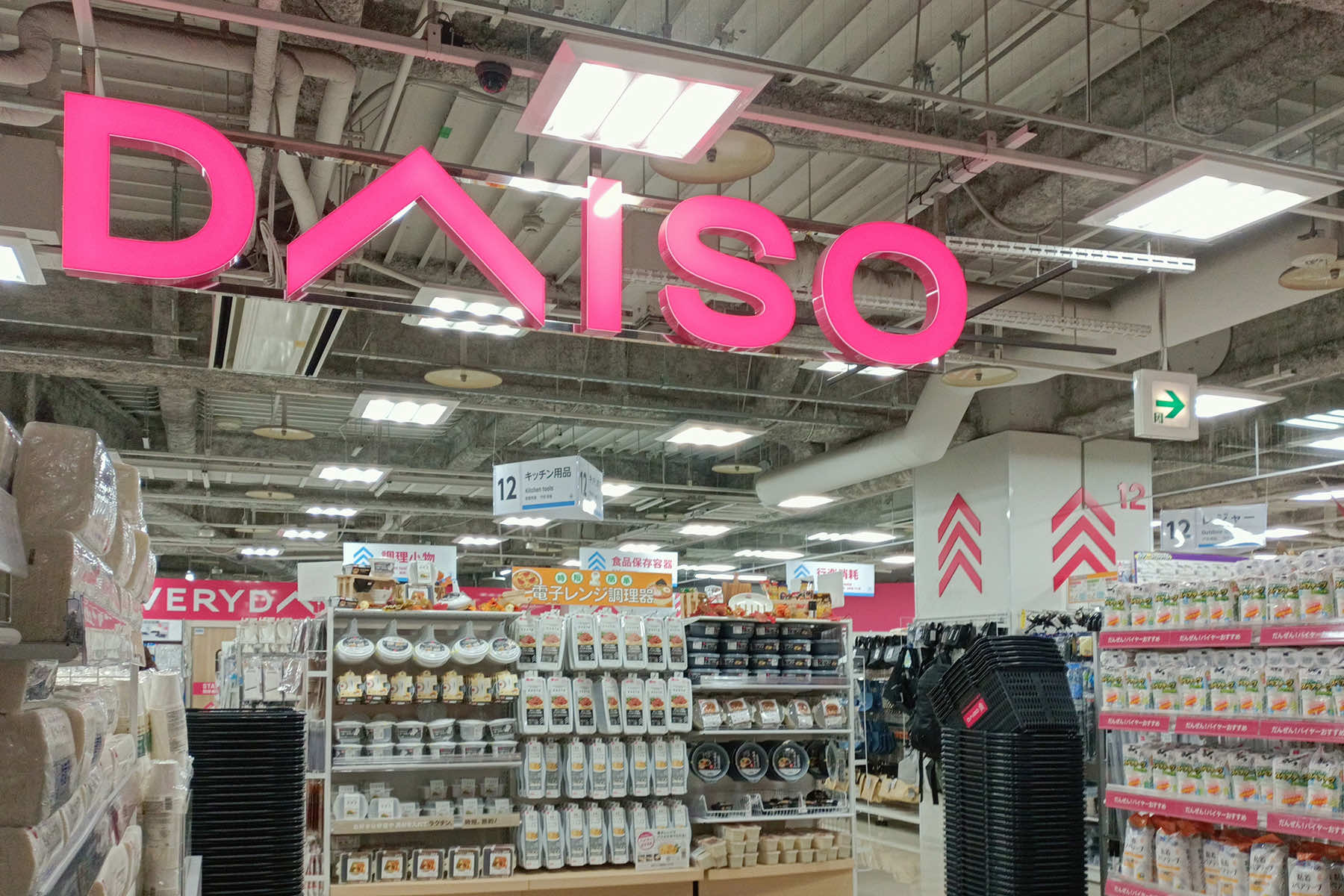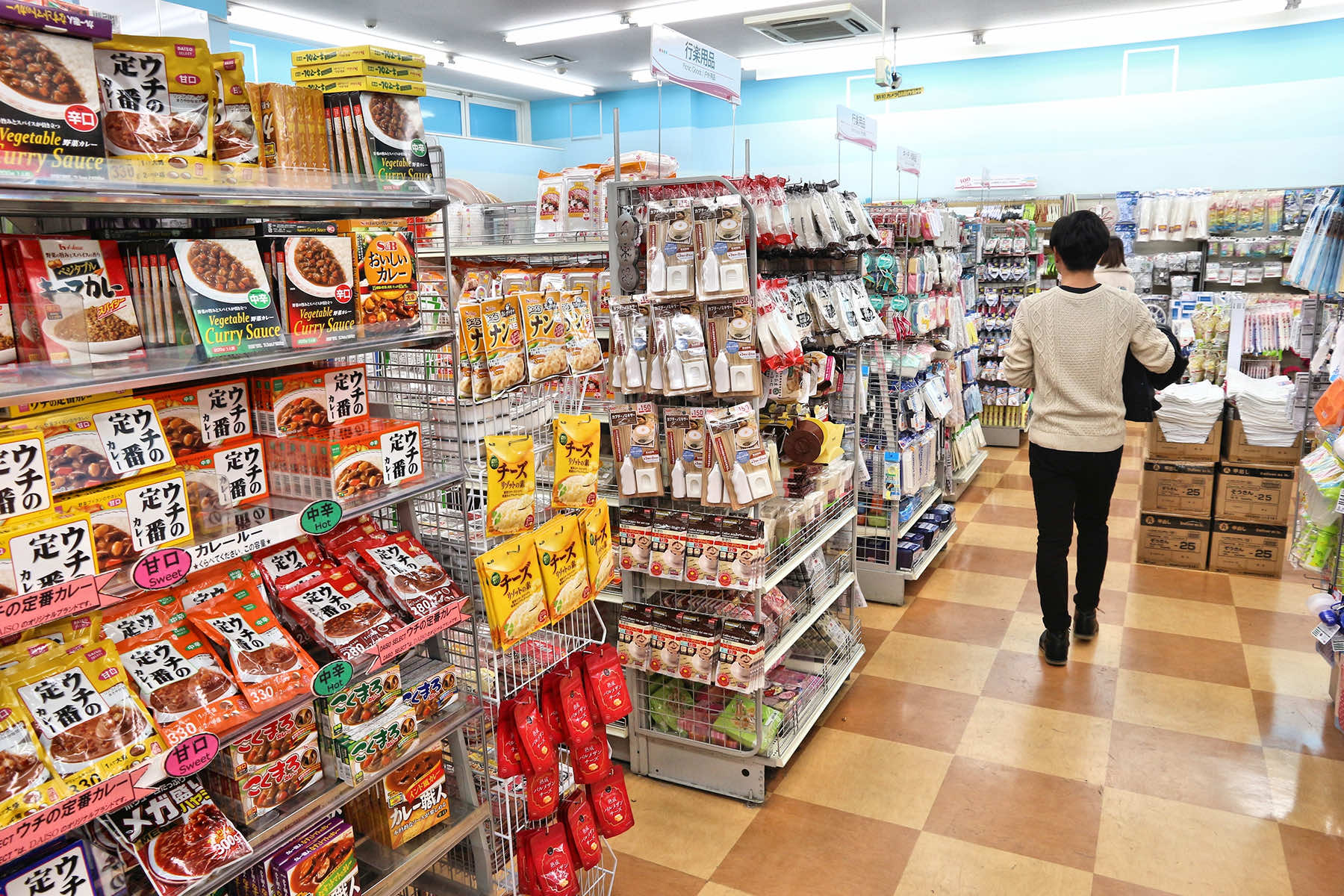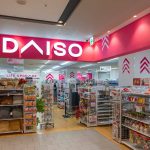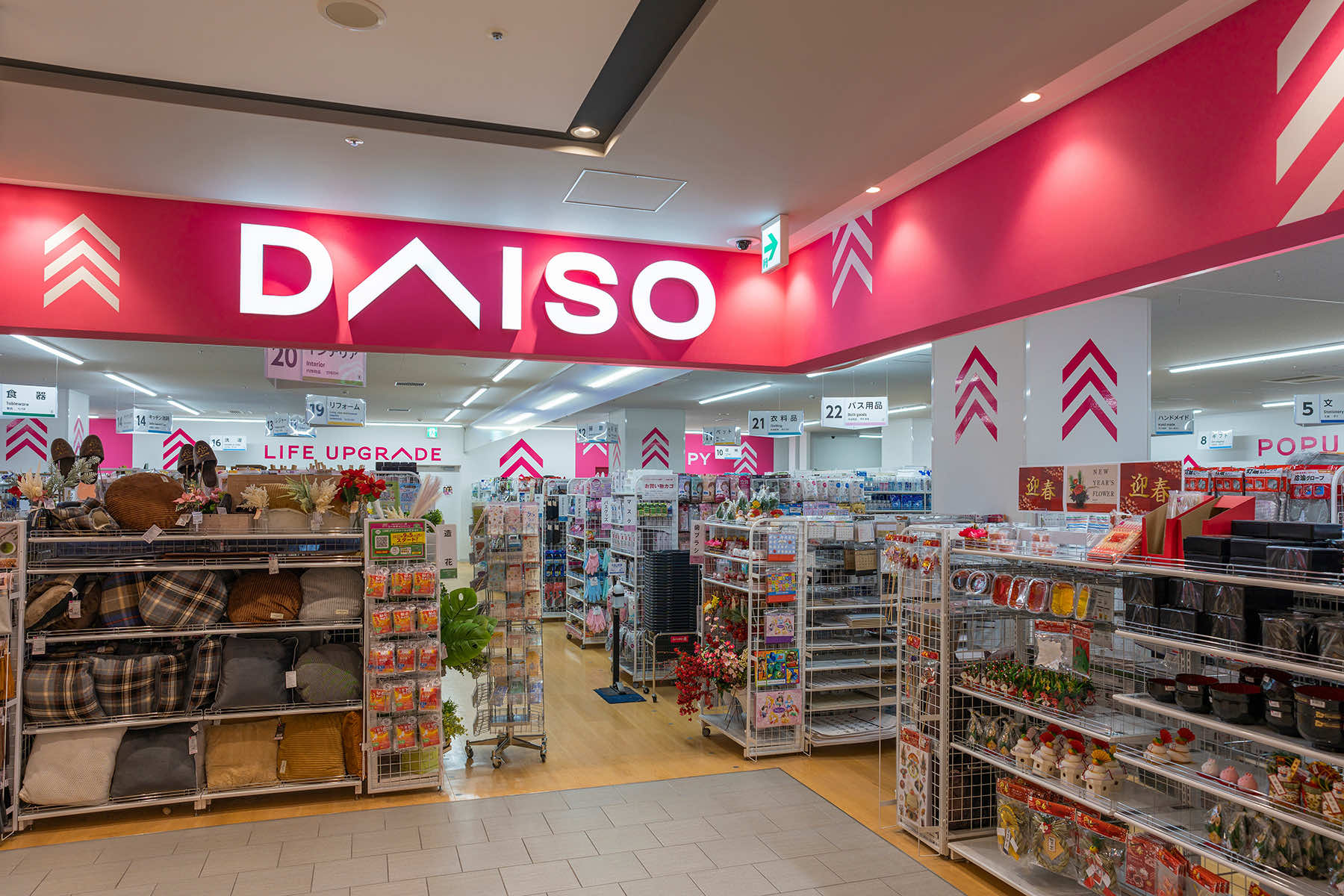
Daiso, a popular Japanese discount retailer, is preparing to open its first Wisconsin location at Southport Plaza in Kenosha, offering local residents and visitors a wide range of low-cost household items, stationery, beauty products, and more.
The store is scheduled to launch in spring 2025 according to information posted on its website. Daiso traces its roots back to 1972, when founder Hirotake Yano opened a street vending shop under the name “Yano Shoten” in Takamatsu, Kagawa, Japan.
He later established the current company in 1977, maintaining its original concept of selling everyday items at low prices, initially pegged at the ¥100-yen mark, or about ¢.75 cents. Today, Daiso operates more than 6,000 stores globally, with about 150 of those in the United States.
Daiso’s business practice has a longstanding policy of purchasing excess stock from manufacturers which has contributed to its ability to keep prices down. The retailer regularly packages unsold products, stocking its shelves with diverse household goods, craft materials, gardening tools, and Japanese snacks.
Its bargain-friendly model has allowed shoppers in Japan, as well as in other countries, to access everyday supplies at a fraction of typical retail costs.
Local business analysts believe Kenosha’s new Daiso store could produce economic benefits for southeastern Wisconsin. By introducing budget-friendly items across numerous categories, the discount chain is expected to draw shoppers from neighboring communities, increasing foot traffic and potentially boosting sales for other area businesses.
Economists note that Daiso’s success in Japan stems from its broad appeal to consumers seeking affordable home goods. A similar response is anticipated in Kenosha, where the cost of living remained a central concern for many families.
Market observers suggest that the store’s ability to rotate inventory frequently would help generate repeat visits, spurring ongoing activity in the local retail sector. Community leaders acknowledge that additional retail diversity often stimulates commercial corridors by sparking competition and motivating established businesses to update selections or improve customer experiences.
With Daiso’s arrival, Kenosha residents might save money on household basics, while also exploring unique imports such as novelty items and Japanese treats. Industry watchers said the store’s format encourages creative shopping, drawing hobbyists and bargain hunters to discover new items at low prices.
Daiso’s history as a family-owned enterprise also contributes to its reputation for offering both practical essentials and whimsical products. Company representatives have not released details about potential store expansions beyond Kenosha, although past growth patterns suggested that more Daiso outlets often followed initial success in new regions. If consumer demand remained strong, southeastern Wisconsin could see additional locations.
Though Daiso has maintained a robust presence in its home country, where thousands of branches still sell goods at the symbolic ¥100-yen price point, its international stores frequently align pricing with local currencies and operating costs.
While most items in U.S. locations are still sold at near-dollar levels, some merchandise exceeds that threshold, reflecting differences in logistics and import fees. Even with the variations, customers generally flock to the chain for its wide-ranging inventory and novelty factor.
Analysts say that Daiso’s established model of purchasing surplus goods or overstock from manufacturers plays a unique role in its success. Companies that face oversupply use Daiso as a channel to offload products quickly, benefiting from guaranteed bulk purchases. Daiso then sells the merchandise at lower prices, passing those savings on to consumers. The approach has helped stabilize or extend product life cycles, reducing waste and introducing global shoppers to items they might not otherwise find.
Officials in Kenosha expressed optimism that the store’s assortment of inexpensive daily goods and imported specialties would appeal to a broad audience. Enthusiasts of Japanese culture, in particular, are expected to appreciate the unique offerings, including snacks and themed stationery not commonly found in mainstream retailers.
Kenosha’s selection as the retailer’s first Wisconsin city reflected local growth trends and a favorable retail environment. Economic development reports showed that businesses had gravitated toward Kenosha for its strategic location between Milwaukee and Chicago, as well as for its growing population.
The introduction of an international discount chain like Daiso underscores Kenosha’s broader goal of attracting diverse businesses and encouraging mixed-use commercial zones that serve multiple customer bases.
© Photo
Morumotto, Tupungato, JHVE Photo, Yu Photo, Rainy Club, LTDedigos, and PimPamPix (via Shutterstock)

